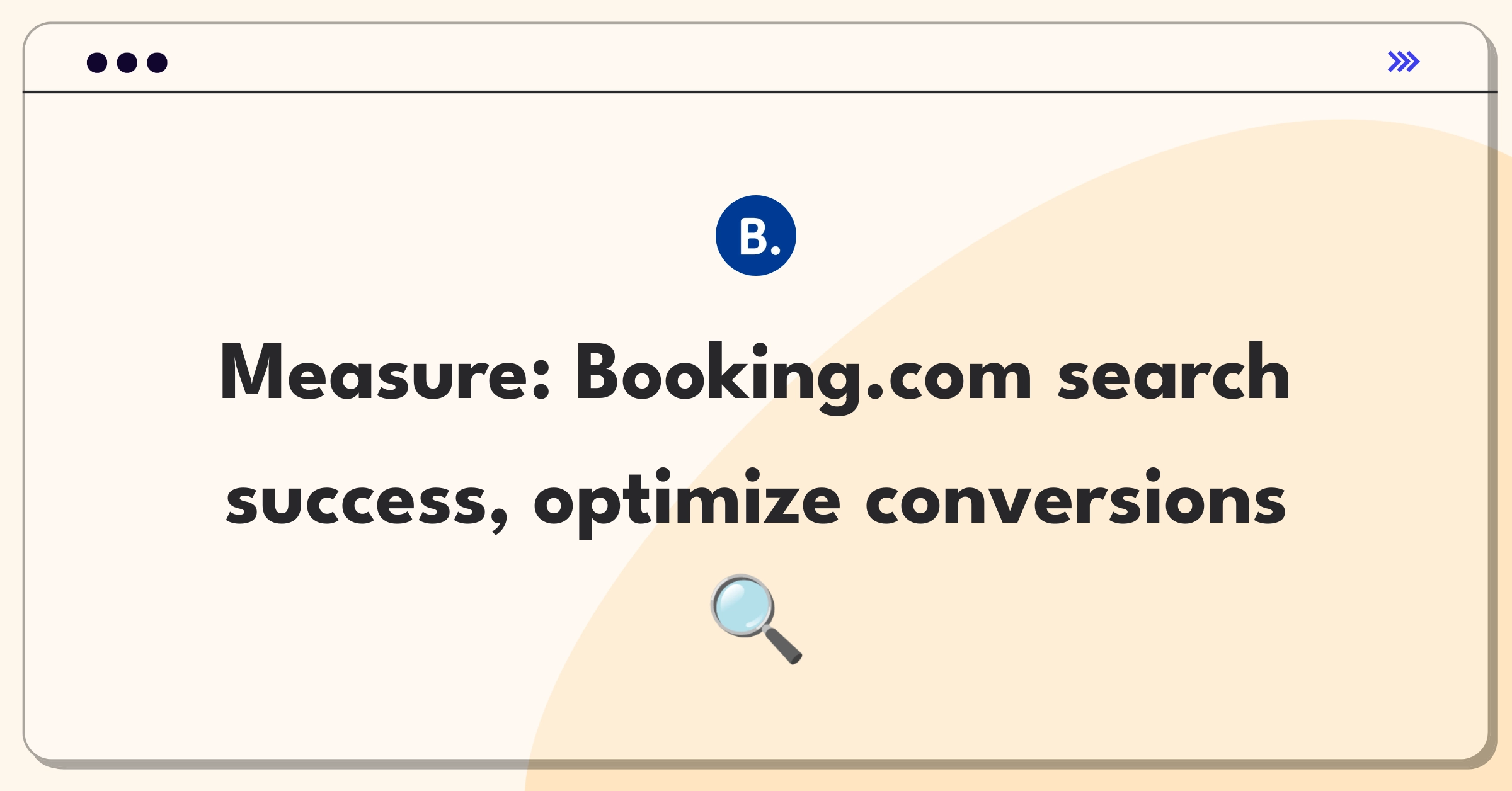Introduction
Measuring the success of Booking.com's hotel search and filtering feature is crucial for optimizing user experience and driving business growth. To approach this product success metrics problem effectively, I will follow a simple product success metric framework. I'll cover core metrics, supporting indicators, and risk factors while considering all key stakeholders.
Framework Overview
I'll follow a simple success metrics framework covering product context, success metrics hierarchy.
Step 1
Product Context
Booking.com's hotel search and filtering feature is a core component of their online travel platform. It allows users to find and book accommodations based on various criteria such as location, price, amenities, and user ratings.
Key stakeholders include:
- Travelers (users) seeking accommodations
- Hotel owners and property managers
- Booking.com's product and engineering teams
- Company executives and shareholders
User flow:
- Enter destination and dates
- View search results
- Apply filters to refine results
- Sort results based on preferences
- Click on properties for more details
- Make a booking
This feature is critical to Booking.com's overall strategy of being the go-to platform for travel accommodations. It directly impacts user satisfaction, conversion rates, and ultimately, revenue.
Compared to competitors like Expedia or Airbnb, Booking.com's search and filtering capabilities are generally considered robust, with a wide range of options and a user-friendly interface.
In terms of product lifecycle, the search and filtering feature is in the mature stage but requires continuous refinement to maintain competitiveness and adapt to changing user needs.
Subscribe to access the full answer
Monthly Plan
The perfect plan for PMs who are in the final leg of their interview preparation
$99 /month
- Access to 8,000+ PM Questions
- 10 AI resume reviews credits
- Access to company guides
- Basic email support
- Access to community Q&A
Yearly Plan
The ultimate plan for aspiring PMs, SPMs and those preparing for big-tech
$99 $33 /month
- Everything in monthly plan
- Priority queue for AI resume review
- Monthly/Weekly newsletters
- Access to premium features
- Priority response to requested question


.png)